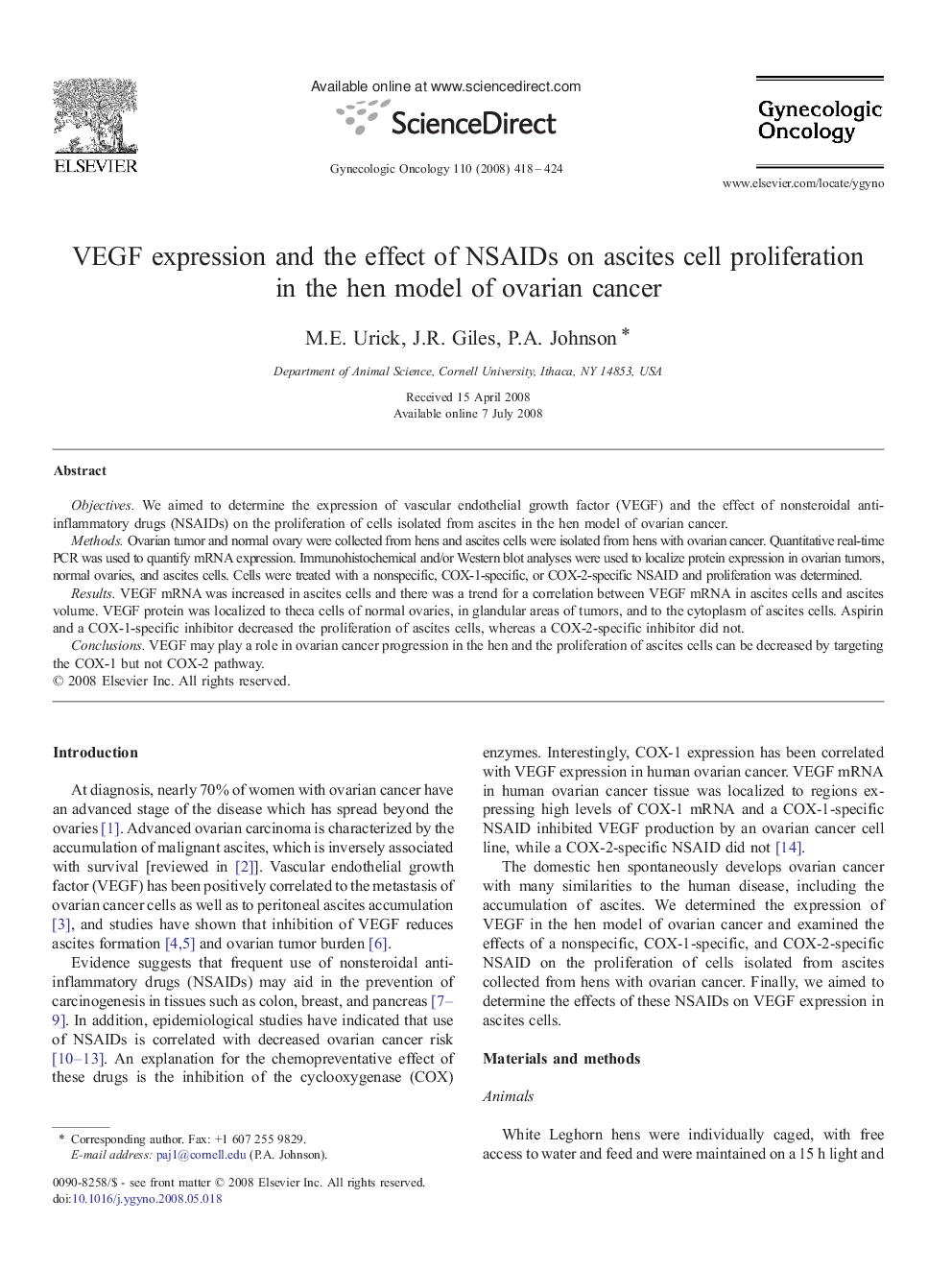| Article ID | Journal | Published Year | Pages | File Type |
|---|---|---|---|---|
| 3944517 | Gynecologic Oncology | 2008 | 7 Pages |
ObjectivesWe aimed to determine the expression of vascular endothelial growth factor (VEGF) and the effect of nonsteroidal anti-inflammatory drugs (NSAIDs) on the proliferation of cells isolated from ascites in the hen model of ovarian cancer.MethodsOvarian tumor and normal ovary were collected from hens and ascites cells were isolated from hens with ovarian cancer. Quantitative real-time PCR was used to quantify mRNA expression. Immunohistochemical and/or Western blot analyses were used to localize protein expression in ovarian tumors, normal ovaries, and ascites cells. Cells were treated with a nonspecific, COX-1-specific, or COX-2-specific NSAID and proliferation was determined.ResultsVEGF mRNA was increased in ascites cells and there was a trend for a correlation between VEGF mRNA in ascites cells and ascites volume. VEGF protein was localized to theca cells of normal ovaries, in glandular areas of tumors, and to the cytoplasm of ascites cells. Aspirin and a COX-1-specific inhibitor decreased the proliferation of ascites cells, whereas a COX-2-specific inhibitor did not.ConclusionsVEGF may play a role in ovarian cancer progression in the hen and the proliferation of ascites cells can be decreased by targeting the COX-1 but not COX-2 pathway.
